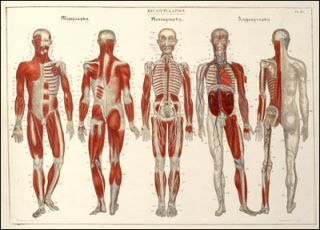If you're like most people, you pay more attention to maintaining your car than your body. That's unfortunate, because your body is a more sensitive and complicated system than anything on the road today.
Without proper upkeep, you surely can expect premature wear and tear, unusual sounds and sluggishness going up hills (yes, I'm talking about your body).
You can also expect anxiety.
Anxiety flourishes in a poorly maintained and unbalanced system. The biggest culprits of anxiety related to system neglect are lack of sleep, excessive use of caffeine and lack of exercise. If left unchecked for too long, these "big three" can lead to increased emotional and physical strain.
In turn, this amplifies worry, stress, feelings of being overwhelmed, fear, panic, and numerous other anxiety-related symptoms and problems. Overall satisfaction with life drops, health problems start to occur and, in some cases, depression sets in.
Reversing the effects of prolonged wear and tear on the body takes effort, a willingness to manage some mild discomfort and persistence. This will require you to make some relatively minor adjustments to your daily schedule.
Below are some key tips for resetting your "check engine light" and kicking anxiety to the curb.
Sleep: Don't go to bed with stress. Unless you leave the day's stress in the day, your body and mind will keep you from resting fully. Write down your thoughts and feelings about what's been bothering you or talk with a friend or loved one about your problems.
Caffeine: Moderation is key when it comes to caffeine use. In moderate doses (200 to 300 milligrams, about two to four cups of coffee daily), caffeine is considered safe and causes no noticeable problems in the average person. But in people prone to anxiety, it can induce worry and outright panic. Plus, it can mess up your sleep. If you tend to be overly anxious or sensitive to caffeine, be careful when getting your morning or afternoon fix.
Exercise: Exercise can be as effective at relieving anxiety as medication and talk therapy. If done regularly and in moderation (too much exercise can weaken the immune system and cause injury), anxiety doesn't have a fighting chance. This is easy for those who are use to a regimented routine, but for the rest of us, it requires blocking out some time four to five days per week and sticking to a schedule.
For many people, controlling anxiety is not that difficult; it just requires some basic changes to the daily routine. Before investing in expensive self-help programs, or along with professional counseling, make some adjustments to the three areas above. You're sure to get the most out of your warranty if you do.
*A previous version of this article was published in Dr. Moore's newspaper column "Kevlar for the Mind" and is based on his book "Taking Control of Anxiety."



